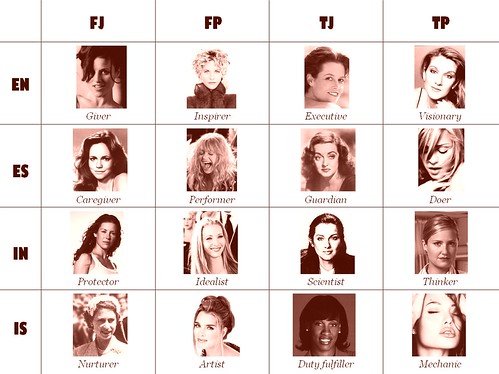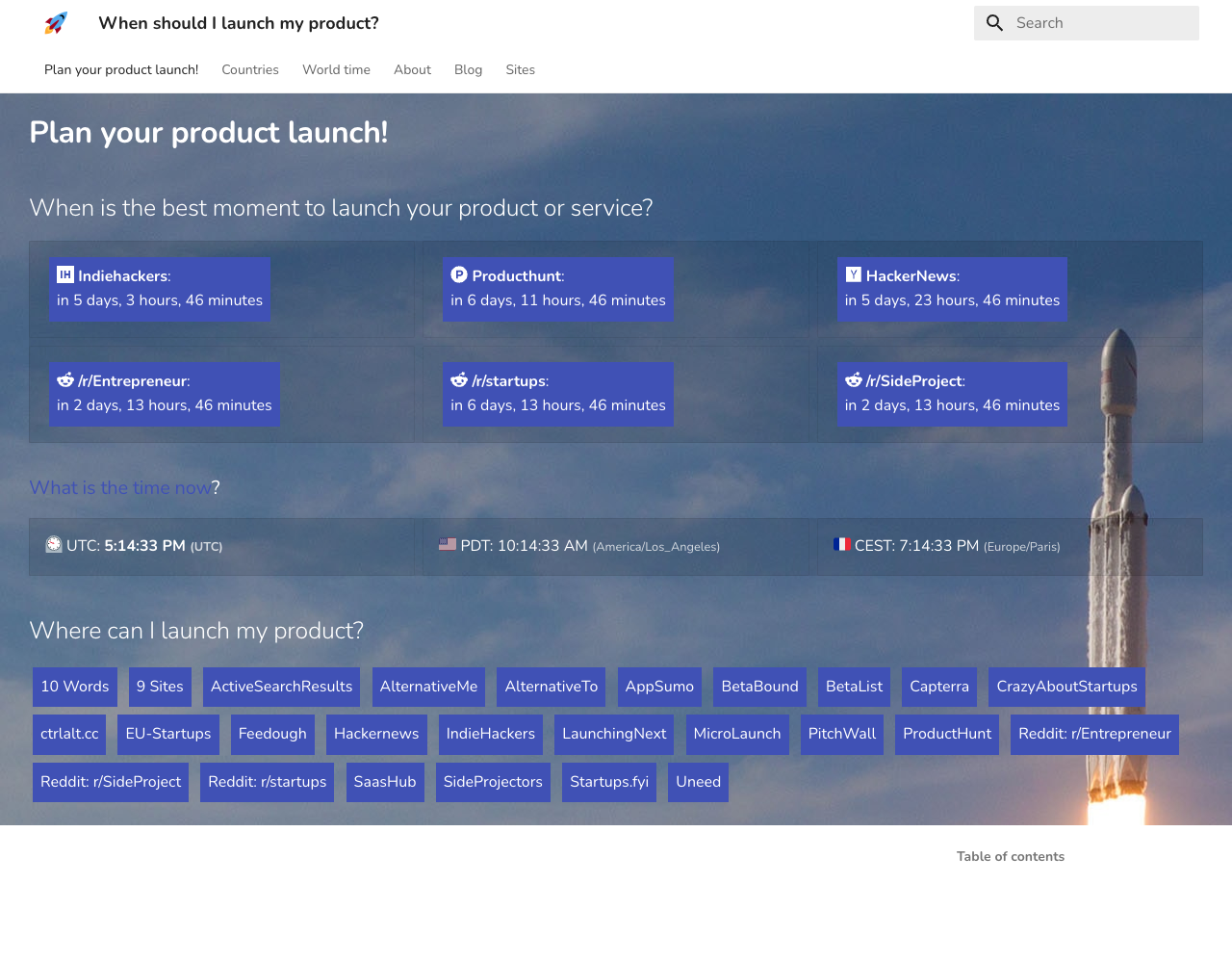Myers-Briggs typology: I’m an ENFP
14 Jun 2006Background
I have never been a big believer in astrology. I am not convinced the location of stars at the moment of your birth is that important to your personality. I’m a Virgo, but I don’t feel that defines me that much. But some years ago I discovered a ‘labeling’ system that was based on the actual behaviour of a person, whose result was much more significant: the (Jung) Myers-Briggs Type Indicator (MBTI):
According to Jung’s typology all people can be classified using three criteria. These criteria are: Extraversion/Introversion – Sensing/Intuition – Thinking/Feeling
Isabel Briggs-Myers added a fourth criterion: Judging/Perceiving
from humanmetrics.com
A good explanation of each criterium is:
- Where, primarily, do you prefer to direct your energy?
- If you prefer to direct your energy to deal with people, things, situations, or “the outer world”, then your preference is for Extraversion. This is denoted by the letter “E”.
- If you prefer to direct your energy to deal with ideas, information, explanations or beliefs, or “the inner world”, then your preference is for Introversion. This is denoted by the letter “I”.
- How do you prefer to process information?
- If you prefer to deal with facts, what you know, to have clarity, or to describe what you see, then your preference is for Sensing. This is denoted by the letter “S”.
- If you prefer to deal with ideas, look into the unknown, to generate new possibilities or to anticipate what isn’t obvious, then your preference is for Intuition. This is denoted by the letter “N” (the letter I has already been used for Introversion).
- How do you prefer to make decisions?
- If you prefer to decide on the basis of objective logic, using an analytic and detached approach, then your preference is for Thinking. This is denoted by the letter “T”.
- If you prefer to decide using values and/or personal beliefs, on the basis of what you believe is important or what you or others care about, then your preference is for Feeling. This is denoted by the letter “F”.
- How do you prefer to organise your life?
- If you prefer your life to be planned, stable and organised then your preference is for Judging (not to be confused with ‘Judgemental’, which is quite different). This is denoted by the letter “J”.
- If you prefer to go with the flow, to maintain flexibility and respond to things as they arise, then your preference is for Perception. This is denoted by the letter “P”.
from teamtechnology
If, for each of these four criteria/dimensions, you choose one of the possibilities, you end up with a four-letter code that corresponds with one of 16 prototypes (e.g. INTJ, ESFP). Since the code itself doesn’t say much, some researchers have come up with a title for each of those categories. One of the better lists is that of personalitypage.com:
| FJ | FP | TJ | TP | |
|---|---|---|---|---|
| EN | Giver | Inspirer | Executive | Visionary |
| ES | Caregiver | Performer | Guardian | Doer |
| IN | Protector | Idealist | Scientist | Thinker |
| IS | Nurturer | Artist | Duty fulfiller | Mechanic |
Or if you want to see some faces on those types (mostly actresses):

Keirsey uses the same letters but they sometimes have a different meaning.
| FJ | FP | TJ | TP | |
|---|---|---|---|---|
| EN | Teacher | Champion | Fieldmarshal | Inventor |
| ES | Provider | Performer | Supervisor | Promoter |
| IN | Counselor | Healer | Mastermind | Architect |
| IS | Protector | Composer | Inspector | Crafter |
You’re my type
When I do a test, I always end up falling into the ENFP category. Now what does that mean?
- Personalitypage: ENFPs are warm, enthusiastic people, typically very bright and full of potential. They live in the world of possibilities, and can become very passionate and excited about things. Their enthusiasm lends them the ability to inspire and motivate others, more so than we see in other types. They can talk their way in or out of anything. They love life, seeing it as a special gift, and strive to make the most out of it.
- Typelogic: ENFPs are pleasant, easygoing, and usually fun to work with. They come up with great ideas, and are a major asset in brainstorming sessions. Followthrough tends to be a problem, however; they tend to get bored quickly, especially if a newer, more interesting project comes along. They also tend to be procrastinators, both about meeting hard deadlines and about performing any small, uninteresting tasks that they’ve been assigned. ENFPs are at their most useful when working in a group with a J or two to take up the slack
- Teamtechnology: likes looking at information from a global viewpoint, spotting patterns and relationships, that lead to an understanding of the key issues – Focuses more on possibilities for the future than the here-and-now – Enjoys change, challenge, and variety – Try ideas out, to explore new possibilities and discover, by experience, which ones work – Change procedures to see if any improvement can be made, rather than just operate them – Be interested in evolutionary development, but with an eye on the strategy – Be more interested in exploring ideas than bringing them to closure
- Personalitytype: People of this type tend to be: enthusiastic, talkative, and outgoing; clever, curious, and playful; deeply caring, sensitive, and gentle; highly innovative, creative, optimistic, and unique; adaptable and resourceful but sometimes disorganized
- Keirsey: The Champion Idealists (used to be called ‘Advocates’) are abstract in thought and speech, cooperative in accomplishing their aims, and informative and expressive when relating with others. For Champions, nothing occurs which does not have some deep ethical significance, and this, coupled with their uncanny sense of the motivations of others, gives them a talent for seeing life as an exciting drama, pregnant with possibilities for both good and evil. This type is found in only about 3 percent of the general population, but they have great influence because of their extraordinary impact on others.
- lifexplore: ENFPs are initiators of change who are keenly perceptive of possibilities, and who energize and stimulate through their contagious enthusiasm. They prefer the start-up phase of a project or relationship, and are tireless in the pursuit of new-found interests. ENFPs are able to anticipate the needs of others and to offer them needed help and appreciation. They bring zest, joy, liveliness, and fun to all aspects of their lives. They are at their best in situations that are fluid and changing, and that allow them to express their creativity and use their charisma.
- CAPT: For ENFPs the dominant quality in their lives is their attention to the outer world of possibilities; they are excited by continuous involvement in anything new, whether it be new ideas, new people, or new activities. Though ENFPs thrive on what is possible and what is new, they also experience a deep concern for people as well. Thus, they are especially interested in possibilities for people. ENFPs are typically energetic, enthusiastic people who lead spontaneous and adaptable lives.
Of course I only list the stuff here that I agree with/enjoy hearing. You could tell me about the flaws of ENFPs, but I’m a optimist: apparently the only thing I need to compensate for those is an INTJ or INFJ partner. That’s a Scientist or a Protector. Evangeline Lilly? Wouldn’t kick her out of bed for eating crackers.
On-line tests
You can test for your Myers-Briggs type on-line and for free. Depending on how much time you want to spend:
- my own MBTI wizard: also shows distribution and relationships between types
- The short 4-question I-only-have-5-minutes-to-spare Myers-Briggs Type Indicator: describes for each dimension the two extremes and lets you pick one of them.
- The long ‘Jung Typology’ test: 72 Yes/No questions (type “You feel involved when watching TV soaps”) that give you not only your 4-letter code, but also the relative strength of each (e.g. you might be not really introverted but neither extraverted)
- One in French and Italian via Typelogic
Criticism
Not everyone is that pleased with the practice of using MBTI to analyze people:
As noted above, the Myers-BriggsTM instrument generates sixteen distinct personality profiles based on which side of the four scales one tends toward. Technically, the instrument is not supposed to be used to spew out personality profiles and pigeonhole people, but the temptation to do so seems irresistible.
from skepdic.com
I can only say from experience: I have taken the 72-question test a couple of times during the last 4 years, and I have always gotten ENFP as an answer, a result that I find fairly accurate. This could be because I have pretty consistent behaviour, or because of the Forer effect. A lot of my friends turn out to be ENFP too. I just consider MBTI to be one way of understanding your own behaviour and how you tend to react under certain conditions.
PS: The method is called Myers-Briggs, but the lady’s name is Briggs-Myers. I just used Google Battle to decide on the term to use.
